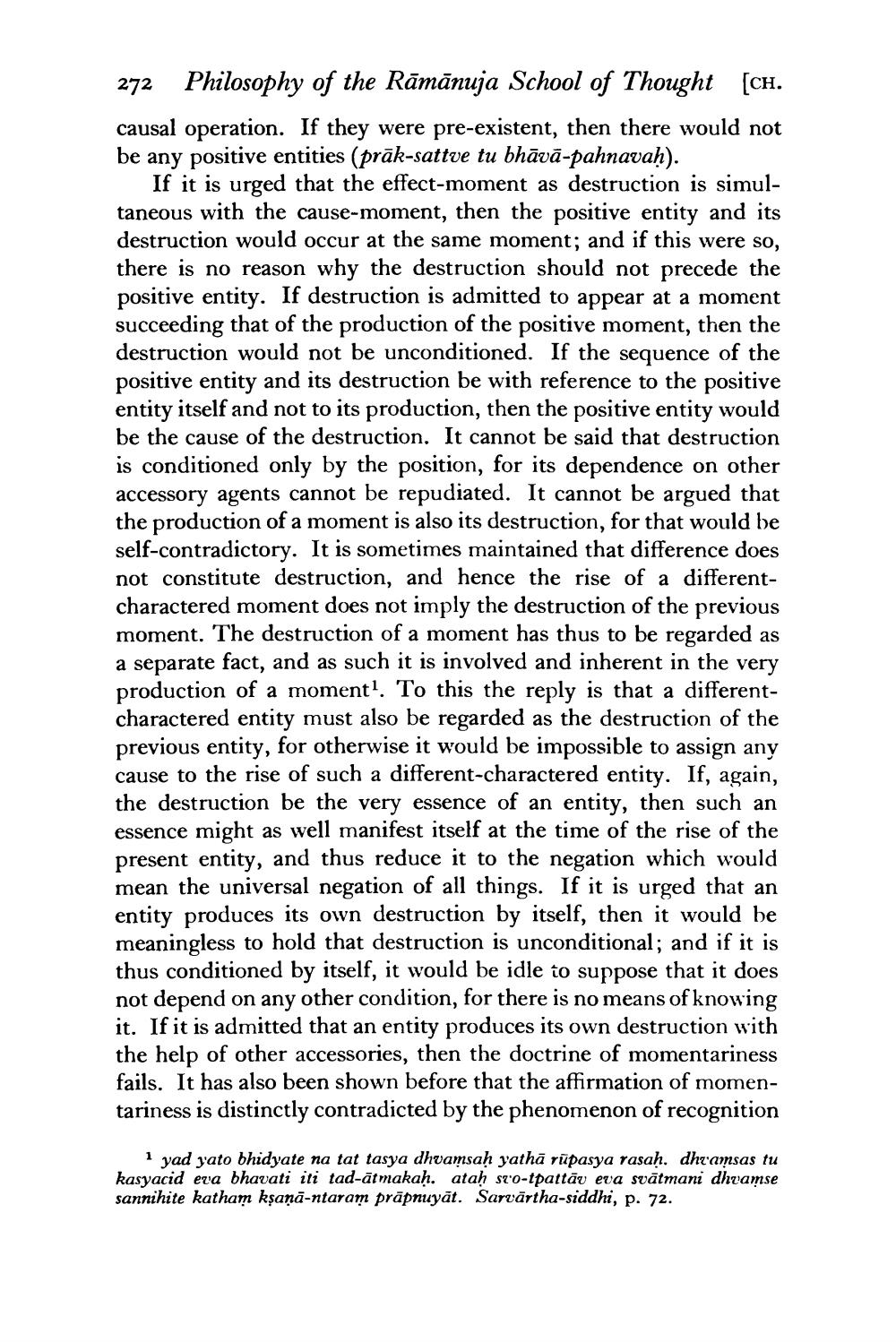________________
272 Philosophy of the Rāmānuja School of Thought [CH. causal operation. If they were pre-existent, then there would not be any positive entities (prāk-sattve tu bhāvā-pahnavaḥ).
If it is urged that the effect-moment as destruction is simultaneous with the cause-moment, then the positive entity and its destruction would occur at the same moment; and if this were so, there is no reason why the destruction should not precede the positive entity. If destruction is admitted to appear at a moment succeeding that of the production of the positive moment, then the destruction would not be unconditioned. If the sequence of the positive entity and its destruction be with reference to the positive entity itself and not to its production, then the positive entity would be the cause of the destruction. It cannot be said that destruction is conditioned only by the position, for its dependence on other accessory agents cannot be repudiated. It cannot be argued that the production of a moment is also its destruction, for that would be self-contradictory. It is sometimes maintained that difference does not constitute destruction, and hence the rise of a differentcharactered moment does not imply the destruction of the previous moment. The destruction of a moment has thus to be regarded as a separate fact, and as such it is involved and inherent in the very production of a moment'. To this the reply is that a differentcharactered entity must also be regarded as the destruction of the previous entity, for otherwise it would be impossible to assign any cause to the rise of such a different-charactered entity. If, again, the destruction be the very essence of an entity, then such an essence might as well manifest itself at the time of the rise of the present entity, and thus reduce it to the negation which would mean the universal negation of all things. If it is urged that an entity produces its own destruction by itself, then it would be meaningless to hold that destruction is unconditional; and if it is thus conditioned by itself, it would be idle to suppose that it does not depend on any other condition, for there is no means of knowing it. If it is admitted that an entity produces its own destruction with the help of other accessories, then the doctrine of momentariness fails. It has also been shown before that the affirmation of momentariness is distinctly contradicted by the phenomenon of recognition
1 yad yato bhidyate na tat tasya dhvamsah yathā rūpasya rasah. dh'amsas tu kasyacid eva bhavati iti tad-ātmakah. atah seo-tpattāv eva svātmani dhvamse sannihite katham kşaņā-ntaram prāpnuyāt. Sarvārtha-siddhi, p. 72.




